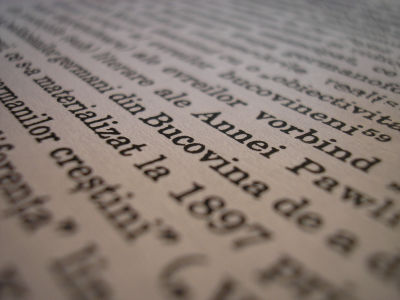Possibility that Shakespeare's sayings are not what the person himself thought

BySteve Czajka
William Shakespeare, a poet William Shakespeare, who has left numerous masterpieces such as "Romeo and Juliet" and the four great tragedies "Hamlet" and "Macbeth", has been said to have produced a lot of words and idioms, many of which are dictionaries It is registered in or it is used in quotation. However, Professor at the University of Melbourne, who has been doing research on Shakespeare for many years, claims that Shakespeare's words and idioms include things that Shakespeare has not devised.
To be or not to be ... original | Pursuit by The University of Melbourne
https://pursuit.unimelb.edu.au/articles/to-be-or-not-to-be-original
According to Professor David McClynis of the Department of Art History at the University of Melbourne, words and idioms that Shakespeare thought were invented were already already known words or logical combinations of existing concepts It is that.
So why is it believed that Shakespeare invented many words and idioms, the reason is that it is in the world's largest English dictionary "Oxford English Dictionary (OED)". OED has more than 33000 quotations from Shakespeare's work, but according to Professor McClynis, OED tends to refer to works that are particularly famous among literature, and the words and idioms already used by people Even if it is a phrase, I used a quote from a famous literary work for that explanation.

ByJonathan Cohen
For example, "It's all Greek to me." Which appeared as a dialogue of Casca in the first act 2nd place of Shakespeare's "Julius · Caesar (1599)" is "Greek for me who only speak English" In other words, it means "ghibpan," which is sometimes used in English as an idiom. However, "It's all Greek to me." Is used in the book "The Scottish History of James the Fourth" by Robert Greene issued before "Julius · Caesar".
"A wild goose chase" used in the meaning of "pursuing things that can not be obtained / broke down" is cited as an idiomatic phrase used by OED in plays "Romeo and Juliet (around 1595)" However, it is said to appear at least six times in the book of Garveys Markham, which was issued in 1593. This means that people of that era can understand the meaning of A wild goose chase when they read a book, that is, there is a high possibility that they were already known.
Professor McClynis also noted that many of the words and phrases that Shakespeare thought were invented were already used, and when paying attention to Shakespeare's quotes in front of people, they warned not to be laughing I advise you better.
Related Posts:
in Note, Posted by darkhorse_log







